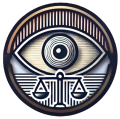1. Governance and Leadership
- IERG Governing Board
- Role: The Governing Board oversees the strategic direction, governance, and overall functioning of the IERG. The board ensures that the institute maintains its mission of promoting ethical research and adheres to all regulatory and ethical standards.
- Responsibilities: Establish strategic objectives, approve policies, maintain transparency and accountability, and provide leadership for the entire body. The board also works to ensure that IERG meets its role in providing guidance on Regulatory Compliance and ethical best practices.
- Director of Operations
- Role: Supports the Governing Board by managing day-to-day operations of IERG, ensuring efficient coordination among various teams.
- Responsibilities: Supervises team leads, oversees operational planning, ensures efficient resource allocation, and monitors adherence to internal and external regulatory policies.
2. Review and Compliance Team
- Lead Ethics Reviewer
- Role: Manages the ethical review process by allocating cases to qualified reviewers and overseeing their activities to maintain consistency.
- Responsibilities: Ensures timely completion of ethical assessments, provides expertise in difficult ethical decisions, and works closely with the Deputy Director and Governing Board.
- Ethics Reviewers
- Role: Conduct detailed reviews of research proposals, ensuring adherence to ethical guidelines and ensuring compliance with applicable UK regulations.
- Responsibilities: Assess research protocols, analyse participant risks, identify ethical challenges, and suggest necessary modifications.
- Expertise Areas: Reviewers specialise in various research domains, such as Educational Research, Public Health, AI and Data Privacy, Complementary Medicine, etc.
- Data Compliance Specialists
- Role: Ensures that all research reviewed by IERG complies with data protection regulations, such as the UK GDPR.
- Responsibilities: Guides researchers on data handling requirements, verifies privacy and confidentiality protocols, and ensures compliance in participant data processing.
3. Advisory Boards
- External Subject Matter Experts (SMEs)
- Role: Provide specialised expertise in areas like Public Health, AI Ethics, Complementary Medicine, and Community-Based Research.
- Responsibilities: Support the review team by offering specialist advice, help in addressing complex methodology and ethical issues, and ensure emerging research fields receive proper oversight.
- Community Representatives
- Role: Serve as advocates for community interests, ensuring that community values and perspectives are reflected during the ethical reviews.
- Responsibilities: Evaluate participant-facing materials, provide input on studies that involve public engagement, and ensure participants’ rights are respected.
4. Quality Assurance and Training Team
- Quality Assurance Officers
- Role: Maintains the quality and consistency of reviews conducted by IERG, ensuring adherence to best practices.
- Responsibilities: Conducts audits of completed reviews, identifies areas for improvement, and implements quality initiatives to streamline operations.
- Training and Development Coordinator
- Role: Manages training programs for both IERG staff and external stakeholders, ensuring a comprehensive understanding of ethical regulations and procedures.
- Responsibilities: Develops training content, organises workshops, and updates staff on evolving ethical guidelines and regulatory changes.
5. Administrative and Support Team
- Research Coordination Manager
- Role: Acts as a bridge between researchers and the review team, ensuring seamless communication.
- Responsibilities: Manages the submission of research proposals, tracks progress and ensures timely communication regarding decisions and feedback.
- Oversight Request Coordinator
- Role: Oversees the processing of oversight requests, including the initial overview and related finances.
- Responsibilities: Organises the initial assessment of submissions, ensures payment processing, and facilitates the preparation of initial assessment reports.
- Administrative Assistants
- Role: Provide clerical support to ensure efficient functioning of IERG.
- Responsibilities: Handle documentation, arrange meetings, manage researcher inquiries, and maintain accurate records.
- IT Specialist
- Role: Manages the digital infrastructure for submission, review, and communication.
- Responsibilities: Supports the secure functioning of submission portals, ensures system reliability, and manages cybersecurity for data protection.
6. Regulatory Compliance and Consultation Team
- Regulatory Compliance Consultants
- Role: Provides specialised guidance on navigating UK and international research regulations, ensuring compliance across all research projects.
- Responsibilities: Reviews research protocols for adherence to regulatory requirements, assists in navigating methodological, ethical and legal challenges, and ensures all research reviewed by IERG meets the necessary statutory requirements.
